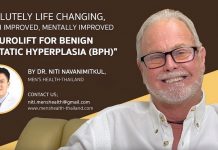I have touched on this before, but it needs to be looked at again. More and more, we are being asked about the medication we prescribe. Will it mix with something “natural” growing on trees? And mentioning trees, I am also not a tree hugger. I am sure trees, like us, have their bad hair days too, but they’ll have to get their hugs somewhere else I am afraid. I once knew a tree hugger who stopped the man with a bulldozer tearing down a tree at the rear of her house. 12 months later the tree fell over on top of it, demolishing the kitchen and half the dining area. Trees have obviously no sense of moral gratitude.
I am, however, a conventionally trained British/Australian style medical practitioner who has spent a lifetime practicing EBM, otherwise known as Evidence Based Medicine. Practices that have been proven to work.
My training included six years at an Australian university that had a good name, and still does, despite undergraduates like me. I am also proud of my final exams taken in the Royal Colleges of Physicians and Surgeons in London. I have the honor to have my name listed in the ‘great book’ with luminaries such as Hunter, Jenner and Lister. I am also indebted to my tutors during the 12 months of ‘pre-registration’, where you apply your limited knowledge under the supervision of senior specialists. A safeguard for you, the general public.
The ‘powers that be’ are also ensuring that we keep up to date with a process called Continuous Medical Education (CME). That medical education continues through to today, with CME lectures being attended by my hospital’s doctors, and myself. Fortunately for me, the slides are in English, even though sometimes the lecture is not.
Those ‘powers that be’ also ensure that we prescribe drugs that are efficacious, that have been tested, and the evidence points to this. It is not anecdotal evidence, but true scientific evidence shown by research in many countries, with hundreds of thousands of patients. It is following that type of evidence, that I can recommend with all good faith, that 100 mg of aspirin a day is good medicine. I also know that prescribing a ‘statin’ drug will lower your cholesterol levels. They have been tested. And these days, very rigorously indeed.
I am also the first to admit that we have sometimes managed to get it wrong. The Thalidomide story still has living examples of this. However, the medical world-wide network is cohesive enough to ensure that this drug was withdrawn. It is the checks and balances system that has kept western medicine afloat. This is not to be equated with the checks and balances system that have been incorrectly applied in the banking industry that sees the institutions on the brink of sinking!
I am often asked my opinion on “alternative” medicine, and all its diverse areas of ‘specialization’. As a non-tree hugger I try to avoid direct confrontation over this. If devotees have found that they can diagnose tumors by looking at patient’s auras through their third eye in the middle of their foreheads, then I am genuinely pleased, in fact delighted, provided that they have subjected the method to scientific scrutiny.
If various groups can cure cancer, epilepsy, halitosis or lock-jaw by inserting Himalayan grasses into a fundamental orifice, then again I am delighted. This is a medical break-through, but as such, must be subjected to medical scrutiny. If the method stands true scientific examination (not to be confused with anecdotal ‘evidence’) then it will be adopted by everyone, complete with thanks to those clever people who picked the Himalayan grasses in the first place. After all, penicillin was tripped over, not designed. But it has had a very rigorous scientific scrutiny since.
As far as the majority of ‘folk’ remedies is concerned, I work on the principle that if you ‘think’ it is doing you good, then it probably is. But don’t ask me to endorse something that has not been scientifically tested.
When the ‘alternative’ group spends more time proving their methods, instead of complaining about non-acceptance, EBM practitioners will give them more credence.




